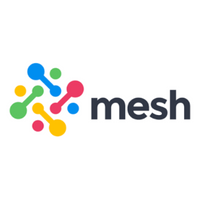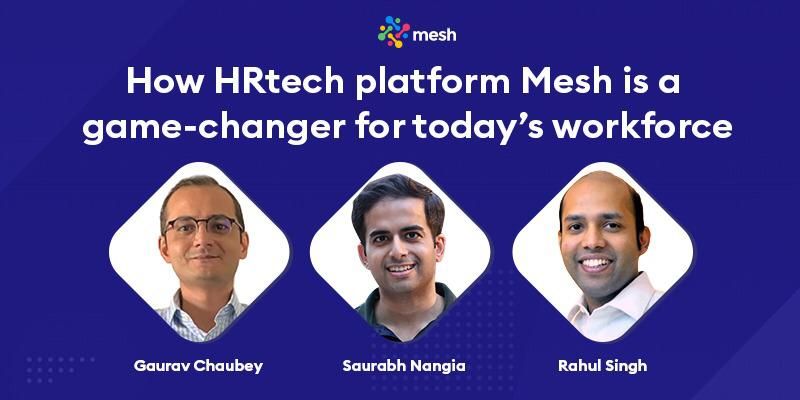
Mesh.AI
View Brand PublisherHow HRtech platform Mesh is a game-changer for today’s workforce
The lightning speed of technological evolution is rapidly changing our present and our perspectives for the future. From self-driving cars to the Internet of Things, technology has made life easier for us. In addition, the introduction of Artificial Intelligence (AI) has played a significant role in ensuring that people are provided with personalised recommendations based on their history and usage of a particular product. So, when it has all become so easy elsewhere, could HR management systems be far behind?
Mesh, a Gurugram and San Jose-based people management platform built for the future of work, makes it easier for employees to track their daily and weekly tasks, manage long-term goals, and receive timely feedback from managers. While the introduction of remote and hybrid work environments have been the key growth driver for the brand, millennials looking for more meaningful work and transparency at their respective workplaces have also furthered its cause.
Inception of a new-age platform
Long before Saurabh Nangia, Rahul Singh, and Gaurav Chaubey came together to create a platform that facilitated easy communication between employers and employees, they were used to delighting their customers in their respective jobs. But while at it, they had noticed a similar pattern — a lack of a new-age people management platform.
With over 10 years of experience in human capital advisory, Gaurav has delivered more than 300 performance and engagement projects to companies. This made him realise that not all deserving ideas were implemented, solely because of the lack of a simple people platform. Observing that the problem existed almost everywhere, he decided to move on from his role at Grant Thornton, a few months before becoming a partner with the firm.
With their experience in helping more than two dozen companies collect data about their customers and building personalised solutions, Rahul and Saurabh founded two other SaaS ventures, one of which was acquired by Snapdeal. One fine day, they realised that no company was doing the same thing for their employees, who are essentially the internal customers. And the vision of helping companies make their employees feel special gave birth to the idea of Mesh. Mesh has witnessed healthy growth since its launch in 2020 and has grown to more than 35 employees across Gurugram, San Jose and Dallas.
The differentiating factor
While traditional HR management systems aim at digitising the HR processes and filling up periodic forms for compliance, they do not usually facilitate continuous conversations between managers and employees. They are predominantly focused on manpower planning, recruitment, onboarding, and several other similar tasks, but fail to encourage self-expression, self-awareness, and self-management. That’s exactly what Mesh aims to address.
By incorporating goal management, performance management and pulse surveys all in the same platform, Mesh is able to enable managers to have more frequent coaching conversations and facilitate the review process that was erstwhile a mammoth data collection exercise for HR practitioners. Even the review process is fully customisable and configurable so any company can easily fit their performance philosophy into Mesh.
Mesh reduces the risk of bias with the help of predictive analytics and brings transparency and visibility to the company. The brand’s clients testify that Mesh allows them to have a 360-degree evaluation of their employees accurately with its goal management and performance evaluation tools.
In addition, Mesh also helps companies manage their employees better, while simultaneously increasing their level of satisfaction. It helps companies scale OKRs from a small group of leaders, conduct check-ins and reviews in about half the time, and helps companies drive more transparent assessments.
Additionally, making progress on goals and receiving continuous feedback is amplified with the use of personalised nudges that are shown based on a user’s interaction with the platform. By using AI, Mesh encourages people to share their experiences in free-flow text in a continuous manner. Natural Language Processing powers the platform to extract information that a form tries to capture. It also uses predictive analysis across the entire hire-to-retire cycle to determine who is most likely to move out of the company, or who is most eligible for promotions enabling leaders to make strategic decisions with ease.
“After speaking with 200+ companies, we realised that continuous performance management is the future and modelled Mesh on those lines. Additionally, the demand for continuous feedback and one-on-one interactions is growing in the remote-hybrid workspace,” says Gaurav.
Growth and revenue
Although Mesh faced some initial hiccups with the onset of the COVID-19 pandemic, the situation did not affect their targets. The team had to take pay cuts initially for a few months, but soon got into YCombinator and got angel investors thereafter.
The arrival of 2021 brought in paid customers for Mesh, and there has been no looking back since. With clientele like Cred, ShareChat, Pipefy, Cropin, CoinDCX, Grant Thornton, etc, Mesh has seen a growth of almost 100 percent QoQ in revenue and funding of more than $5 million from the likes of Sequoia Surge and RTP Global. Mesh has been increasing its sales and marketing operations globally and aims to go live in more than 200 companies over the next two years.
Saurabh says, “With so many unicorns as our clients, Mesh seems to be the go-to choice in the hypergrowth company space.”






